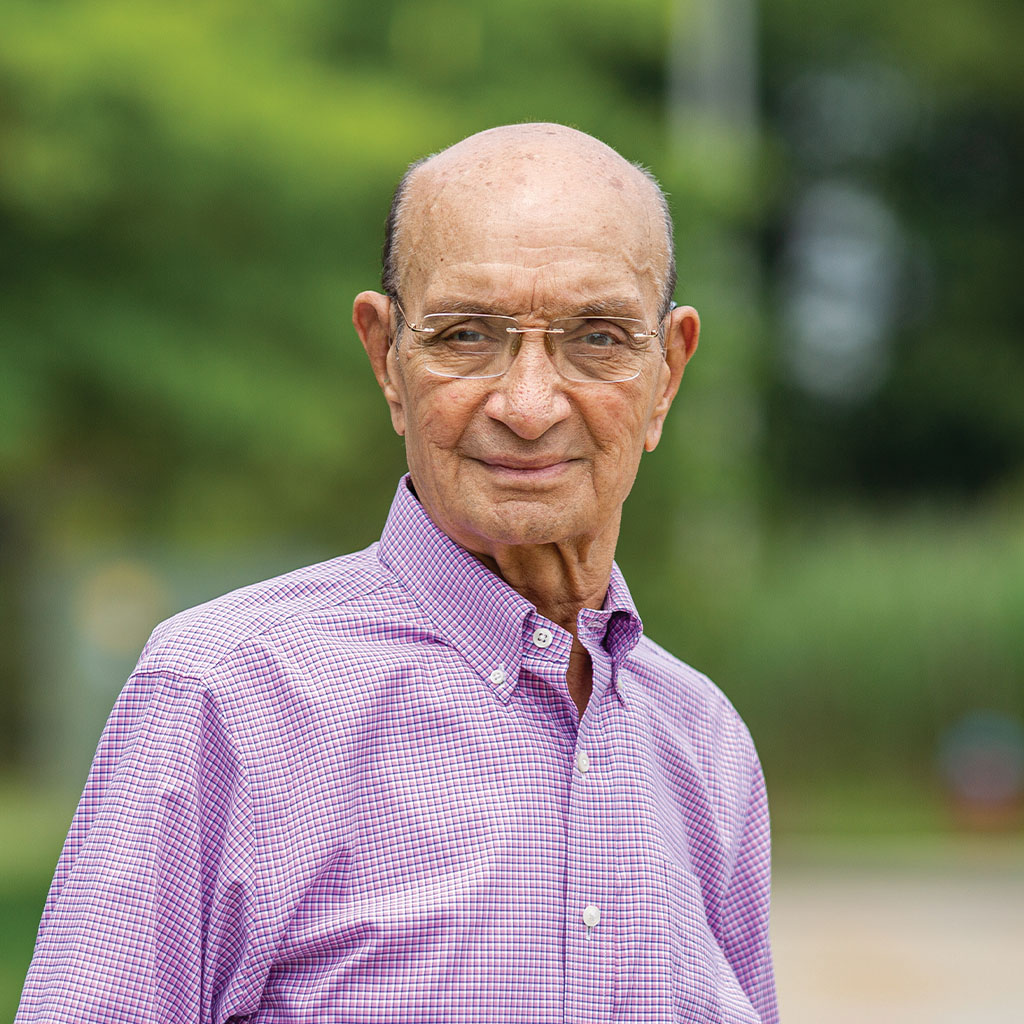Soul of a Teacher: Manubhai (Mike) Karia

Fifty-one years ago, Mike Karia’s flight from India landed at Kennedy Airport on the day after a snowstorm. “I was coming from a place where it was 95 or 100 degrees every day,” he recalls. “There was snow in the Himalayas, but now I was walking on snow.” He survived the winter and a long job search to find accounting work in New York and Newark, New Jersey. In 1974, he was offered the opportunity to become finance director for the city of Dover, Delaware, a position he retired from in 2001. “That was the happiest journey of my life,” he says. He’s still teaching managerial accounting and financial management to WilmU’s MBA students in Dover and Georgetown.
“Teaching is in my blood. It is embedded in me. It has been my temple since 1980. I bow down my head and say, ‘Thank you, God.’ Teaching gives my soul joy and peace.”
— Mike Karia
In the bag. “I saw a newspaper ad seeking an instructor for an MBA accounting class at Wilmington College. I taught business college in India for seven years, in English and Gujarati, and had written three graduate textbooks for the Indian market, but I had never taught in the U.S. I interviewed with Dr. Audrey K. Doberstein. I told her, ‘I wrote the book on management accounting.’ I took the book out of a small plastic bag from a trip to the Acme and showed it to her, but it was written in Gujarati. She asked, ‘How do I know this is you? How do I know I can trust you?’ I said, ‘Look into my eyes. If you think I’m lying, don’t hire me. But if you think I’m not, give me the chance to teach.’”
Doing the math. “The pages of a textbook are full of figures and formulas. The challenge and the joy of teaching is helping students unlock the mystery of those figures and formulas, to make them useful in real life. I took examples from my work with the mayor and the city manager, so they knew I was not talking abstractly. I said, ‘When you go home today, when you go to work at nine o’clock, look around you, look at the budgets they give you. See how they add up.’”
Seven minutes to success. “Before we were all online, I’d start every class with seven minutes of meditation. I call it ‘quieting the mind.’ Because students were coming from work and complications and stop lights and things, and it is all so stressful. I’d turn down the lights, show them how to sit, show them how to hold their hands. We’d continue this practice for each of the seven classes in the block. I hope this practice has helped students to learn how to achieve balance. Because if you’re a better person, you will be a better MBA, and you will be more effective at your desk in the office.”
What is success? “I’m not expecting everyone to be a 4.0 student. I couldn’t be happier than to see a 3.2 student who has become a better person.”
— David Bernard



